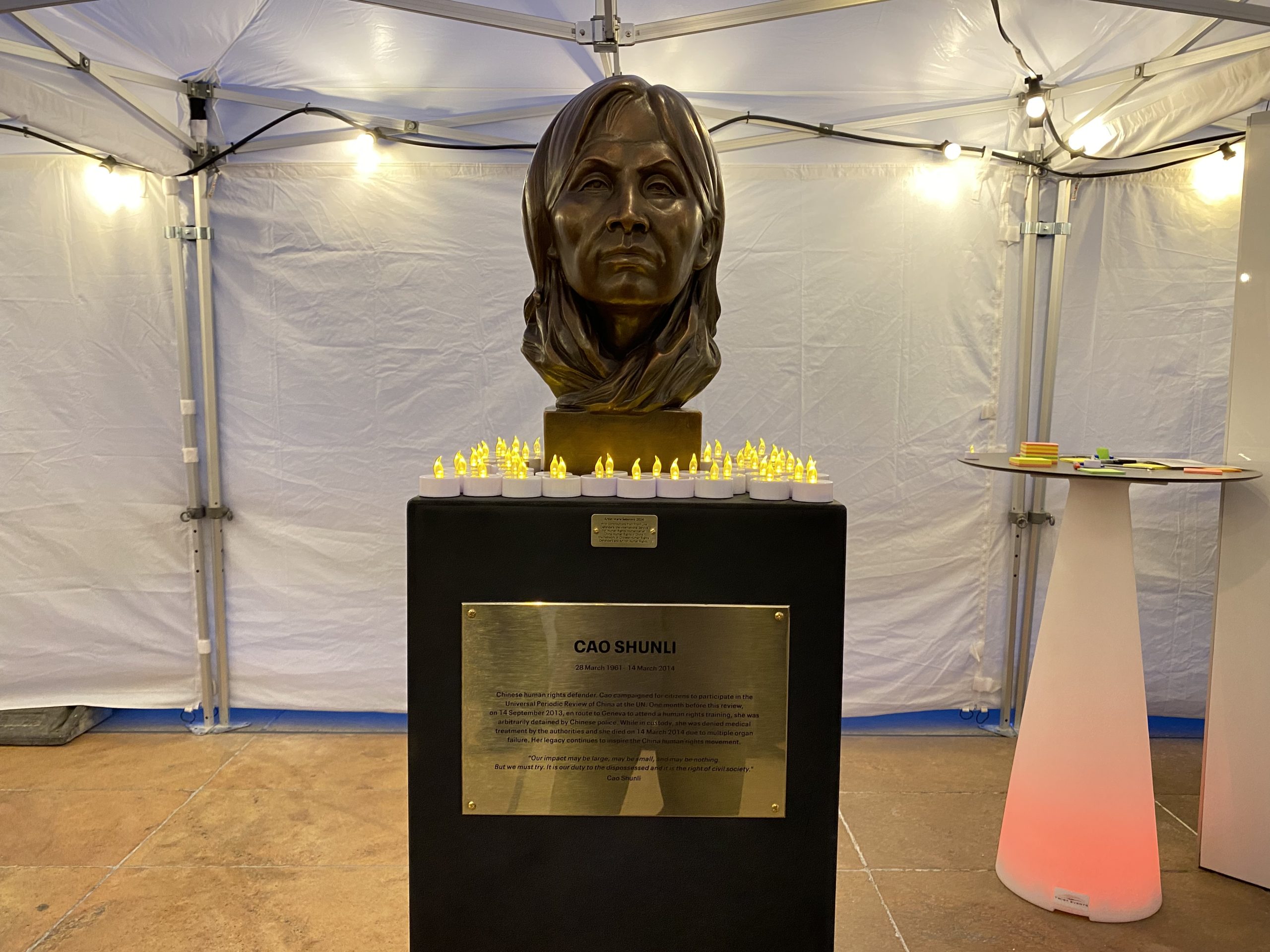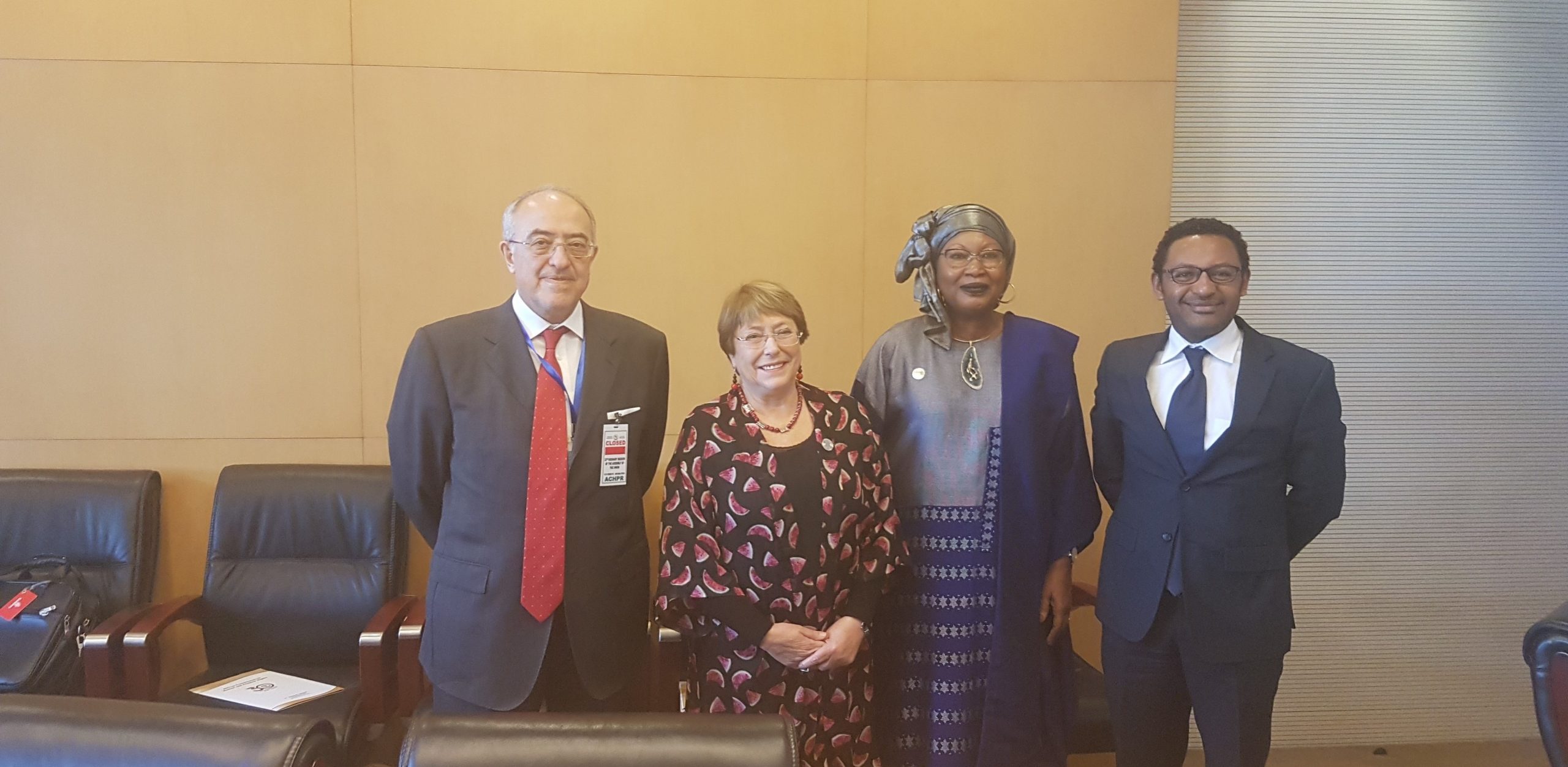On 18 November ISHR took part in a panel evaluating the relationship between the special procedures of the UN and those of the Commission. The panel discussion was aimed at sensitising all stakeholders about the importance of enhanced cooperation between the two systems in the protection and the promotion of human rights. Emphasising that joining forces pays off for promoting and protecting human rights.
The Addis Ababa Roadmap (‘the Roadmap’), agreed upon at a consultation held in Addis Ababa in 2012, provides a guiding framework to encourage special procedures mechanisms of the United Nations and the African Commission on Human and Peoples’ Rights to strengthen cooperation in a number of ways which include conducting joint activities such as joint statements, country visits, systematically exchange information on upcoming events relevant to the African region, and strengthen the follow-up to recommendations. The Roadmap also established a Joint Working Group composed of representatives of both systems with a mandate to coordinate the implementation of the Roadmap.
Commissioner Maya Fadel who is member of the Joint Working Group of the Roadmap presented an overview of the Roadmap. “Organising the collaboration between the 56 special procedure mechanisms of the UN and the 11 of the Commission were an exhilarating exercise especially when we know that all human rights themes covered by the UN are not necessarily covered by the Commission. This collaboration is about strengthening both systems” said Commissioner Fadel.
“The Addis Ababa roadmap constitutes a very important tool for the strengthening of the promotion and the protection of human rights in Africa. This roadmap offers a legal framework and a strong basis of collaboration between the UN and the Commission’s Special Procedures. The work in synergy helps achieve better results” affirmed Commissioner Remy Ngoy Lumbu, also a member of the Joint Working Group of the Roadmap, when presenting the status of implementation of the Roadmap.
Mr. Christof Heyns, member of the Working Group on the Death Penalty, Extra-judicial, Summary or Arbitrary Killings and Enforced Disappearances in Africa and of the UN Human Rights Committee, discussed the achievements and lessons learnt. “Happy to see the joint releases being a practice that is still going on. Additionally, we collaborated on norm setting such as General Comment 3 on the right to life (African charter) which led to several meetings and is a clear example of how such collaboration can work” he added.
Mr. Clément Voulé, United Nations Special Rapporteur on the rights to freedom of peaceful assembly and of association as well as member of the Joint Working Group of the Roadmap, identified the challenges for the implementation and the way forward.
“This is an important discussion. How can we ensure that the UN and the Commission’s mechanisms work together on specific issues of human rights in Africa to guarantee impact on the ground and have a coherent and unified position when it comes to Africa towards member states?” asked Voule. He noted that despite some remarkable achievements, as of today, a number of challenges persist. Indeed, there hasn’t really been any joint reports or studies on specific human rights themes or issues such as on women human rights defenders or civic space when both mechanisms have published on both these issues independently. It is important to show that both mechanisms have the same standards and systemise the cooperation as well as strengthen the training of new mandate holders as to the existence of the road map. He suggested the adoption of an annual action plan which would lay out what both mechanisms plan on implementing so it is easier to identify the needs for collaboration.
Finally, bringing a perspective from civil society, Adélaïde Etong Kame, ISHR Africa Programme Manager, looked at three questions: How does civil society perceive the collaboration between the two systems? How does civil society contribute to the implementation of the road map? and finally, after 8 years, what does society expect from the implementation of the roadmap? “Civil society needs to know that addressing a UN special procedure will not prevent their homologue at the African Commission from addressing the situation which often requires their attention as well” she noted.
Watch the panel here
Contact: Adélaïde Etong Kame, Africa Programme Manager, [email protected]
Photo : ACHPR




